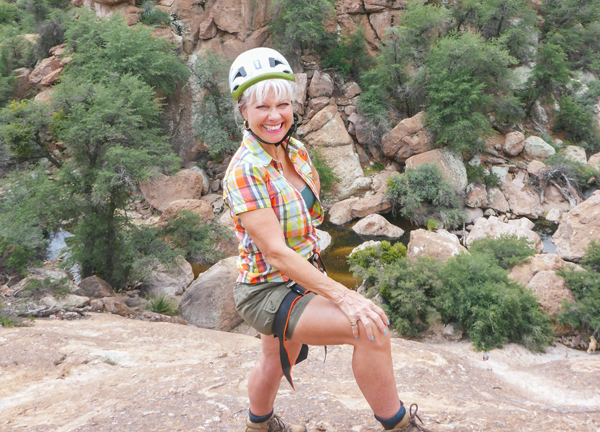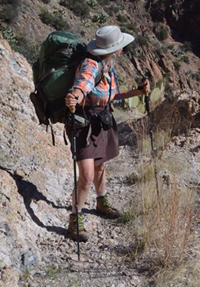The first time I took Mirasol clients camping, there was widespread anxiety about the trip. One client in particular was worried about the tents, the sleeping bags, the wild animals, the bathroom situation … every question answered triggered another a new concern! She was very quiet on the ride to the camping site, and I wondered whether she would be able to relax and enjoy the experience. After we set up camp and began exploring the area, she found me collecting wood for the fire. I anticipated another round of questions, but instead she just grinned and said, “You know, it’s weird, but this is the most like myself that I’ve ever felt!” That incredibly gratifying experience has reoccurred many times, as clients
Tag: posts
First Backpacking Trip with Mirasol Clients
There were those of us — myself included — who doubted it would be possible to incorporate backpacking into a residential eating disorder treatment program. Executive Director Diane Ryan, Admissions Director Carol Magee and I began talking about expanding Mirasol’s adventure therapy program to include backpacking in October, 2014. The challenges seemed overwhelming. First of all, since clients obviously don’t come to treatment outfitted for backpacking, we needed to purchase all the equipment from tents, sleeping bags and sleeping pads to flashlights, hiking poles and utensils. Over the next six months we patrolled eBay and Craigslist for good used equipment, and picked up additional items at sales. Friends got wind of the project and stepped forward with gear to loan or donate. We took a leap of faith
Wilderness: A Powerful Intervention in the Treatment of Complex Trauma
Wilderness therapy is proving to be a powerful intervention in the treatment of complex trauma. Several of the unique features of adventure therapy address the dis-regulation that occurs in the individual’s neurological process from varying degrees of attachment rupture. Wilderness can directly impact resiliency by providing clients with the opportunity to access a sense of safety in a novel way. Adventure therapy often inspires a high degree of perceived risk or threat, similar to the heightened awareness that accompanies complex trauma. Moving through the experience with peers, solving problems, receiving feedback and practicing neural self-regulation allow participants to develop confidence and a set of skills that translate directly into real-world recovery. In this setting, the opportunity to connect appropriately, challenge old beliefs, receive support
QEEG Neurofeedback in the Diagnosis and Treatment of PTSD
QEEG guided neurofeedback has given us the ability to diagnose and treat serious disorders such as PTSD through concrete evidence of neural activity. Post Traumatic Stress Disorder (PTSD) may occur in individuals who have been victims of traumatic events that are outside the range of our usual human experience. The trauma may be the result of physical or sexual abuse, serious accidents or combat. Individual who suffer from PTSD often live in a world of extreme hyper-vigilance, anxiety, and isolation and may suffer from disturbing nightmares and flashbacks. Conventional treatment for PTSD typically involves long-term psychotherapy and continuous use of medications that may mask symptoms rather than addressing the root cause. All too often, clients become discouraged and end therapy prematurely before they are truly
Skills, Not Pills to Treat Binge Eating Disorder
You may have already seen the ads for Vyvanse, the new FDA-approved drug for the treatment of binge eating disorder. Vyvanse was originally marketed for the treatment of ADHD, but Shire Pharmaceuticals, the drug’s manufacturer, is now promoting it as “an effective option to help curb episodes of binge eating.” Binge eating disorder (BED) is the most widespread of all eating disorders and affects 1{c754d8f4a6af077a182a96e5a5e47e38ce50ff83c235579d09299c097124e52d} to 5{c754d8f4a6af077a182a96e5a5e47e38ce50ff83c235579d09299c097124e52d} of Americans. For years it was classified as a medical condition. But in 2013 the authors of DSM-V saw the light and classified BED as an eating disorder. Psychological variables such as low self-esteem, depression and anxiety can trigger BED. Genetic predisposition, a close relative with an eating disorder or drug addiction or the metabolic disturbances caused






